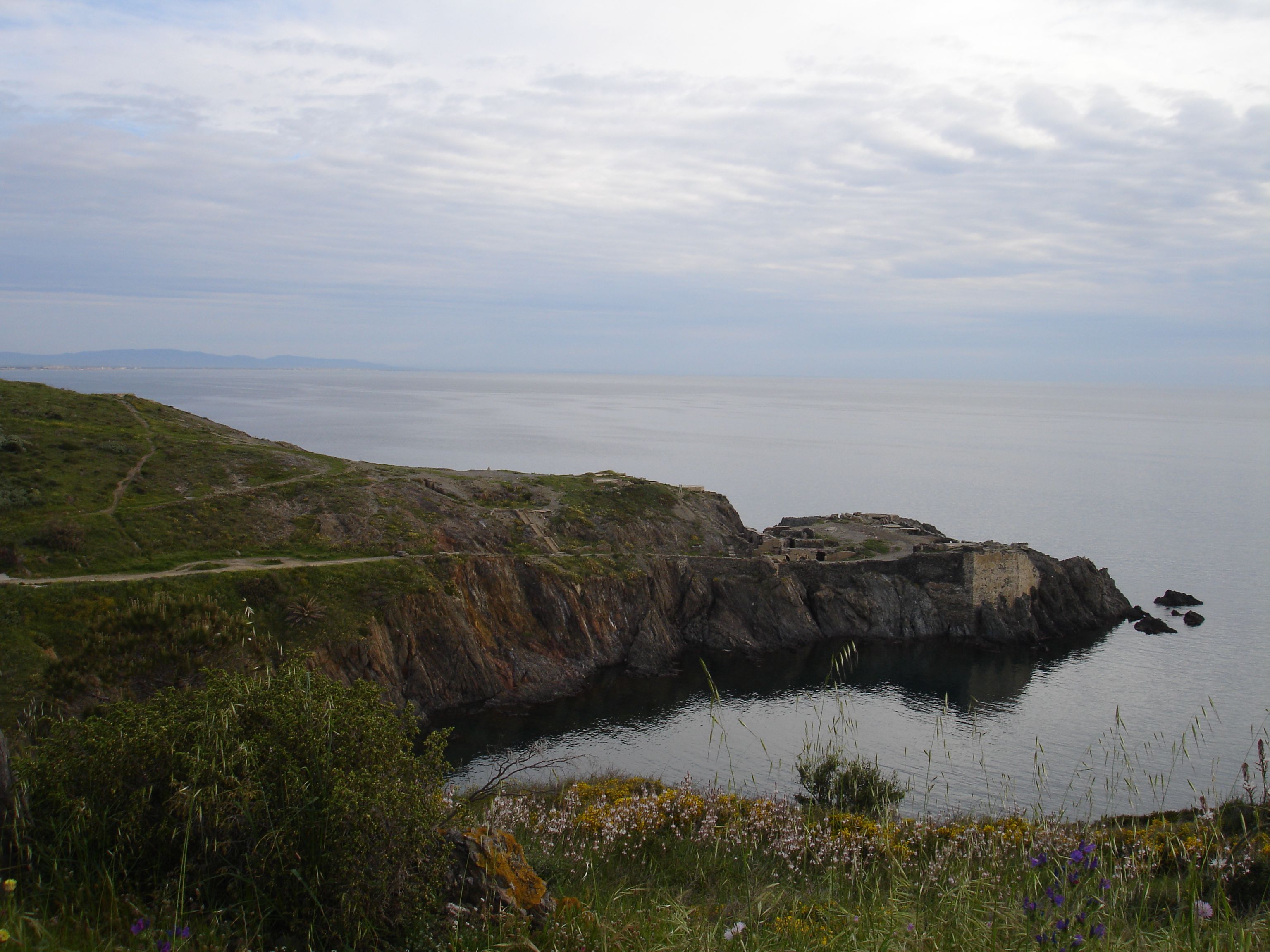When I walked up over this hill in the early morning and looked back at the village, I was completely alone on a small part of the Mediterranean coast. No one knew where I was.

Turning round to see the sea, I looked down over this cove, and, on the far side, a fort and war ruins, French and German, that remain on the cape.

Having escaped from civilisation for a brief hour, I walked down to take a closer look at the ruins and saw why this point had been chosen for a fort; it’s ideal for shooting and blowing up shipping way out on the horizon. No escape for them.
This is one of two arches through which cannons were pointed, with holes for thinner weapons. Unfortunately, with the arch and holes positioned as they are, it resembles a face.

It was horrible, seeing this war junk lying all along the cliff edges.

What struck me was the ugliness of concrete, while the nineteenth-century stone fort has that element of beauty found in stone construction all around this region, whether it be houses, barriers, walls, steps or forts. Here’s some more ugly concrete, a piece of German war litter, a base for a revolving cannon.

Fortunately, wars end, and life is good again. But if you need to take a break from the troubles of ordinary peacetime life, I recommend this coastline where surprises make every day special. I found this beautiful Bottlebrush tree, which I didn’t know grew outside of Australia, growing on a hill with red roses, grapevines and palm trees, all overlooking the blue Mediterranean.






Some beautiful views 😉
I can see a funnel of “wind” beyond the horizon. Great escape.
love to know how that bottle brush got there
Terry
What a wonderful escape, I love that feeling of walking away from the world of people…..and I couldn’t agree more about the ugliness of concrete ….and most of what we build nowadays.
Beautiful photographs 😉
Well, thanks.
Yeah, bring back stone structures!
There are a few of them around here, growing on the footpaths and in gardens – bottlebrushes seem to like the climate here in the south of France and the French love them for their exotic flowers. The must be introduced, not native.
I’m not sure what that is – probably something wrong with my photography. But I’m glad you liked the post.
This post has indeed become a historical kind of escape for me. Thank you for sharing, Trish 🙂
This region, and indeed Europe generally, has centuries, millennia, of history; in some places it’s layered. There are so many history lessons it’s hard to keep up.
Glad you liked it.
Your “French posts” are very nice, Trish. Congrats!
Gracias, merci, and thanks!